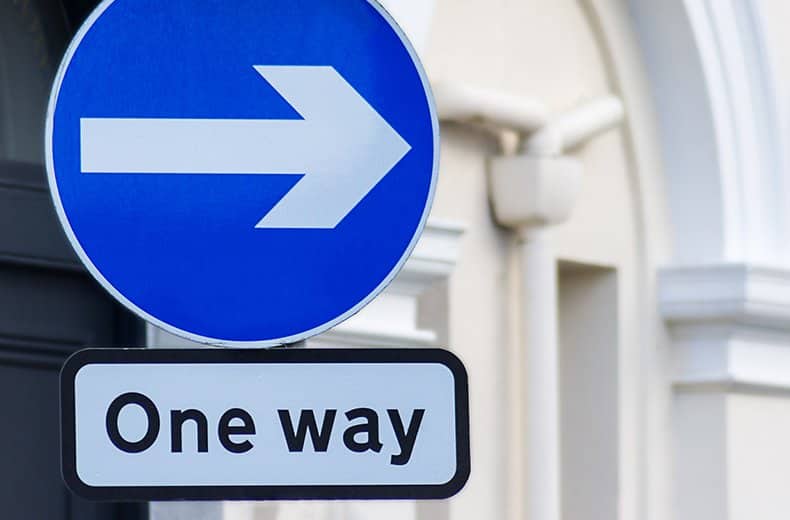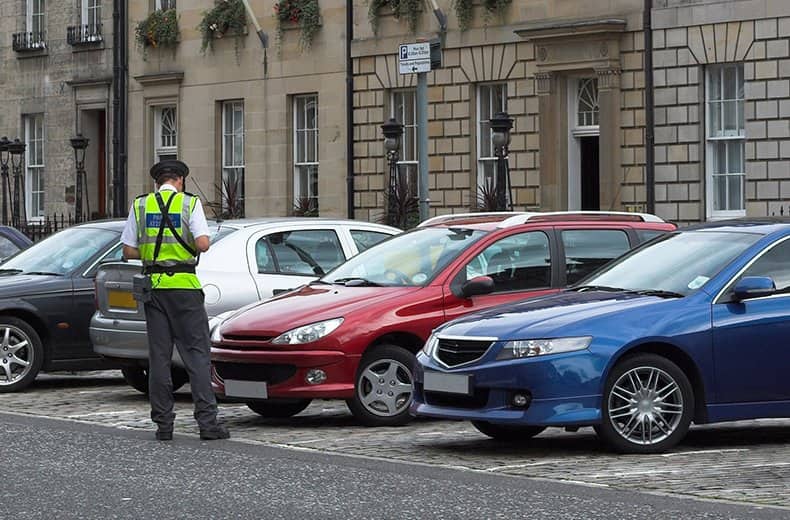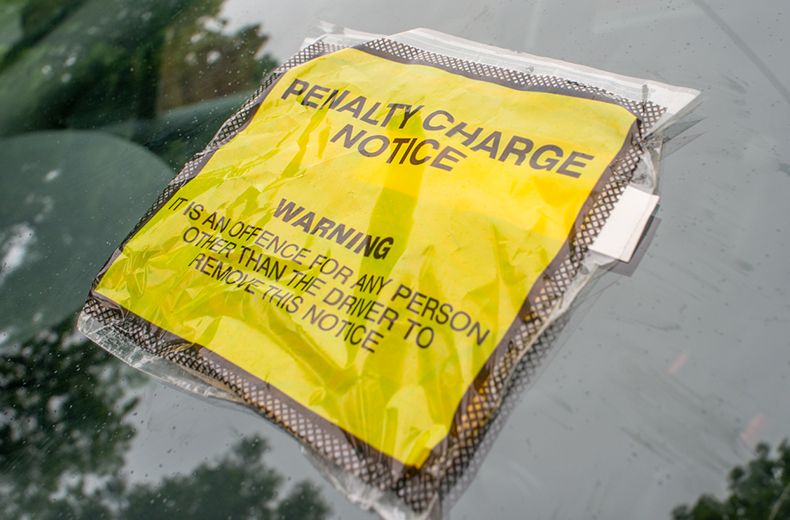But what are Penalty Charge Notices, why are they issued and how are they different from some of the other tickets you could receive? Here’s our guide to everything you need to know about Penalty Charge Notices.
Read our driving advice for PCNs. Got a Parking Charge Notice (PCN)? Find out how to appeal.
What is a Penalty Charge Notice?
Penalty Charge Notices (PCNs) are issued to motorists found to be in contravention of parking restrictions, waiting restrictions and some moving traffic offences that are treated as civil, not criminal, offences.
PCNs are usually issued by local authorities – either by a yellow notice affixed to your car or, if you’re caught on camera, through the post – although in certain areas the police have responsibility for enforcing parking restrictions.
Penalty Charge Notice law

PCNs are issued to drivers found to be in violation of regulations that relate to parking, waiting and moving traffic offences.
Parking and waiting related offences include:
- parking on a double yellow line
- parking wholly or partially in a cycle lane
- parking outside a designated parking bay
- parking without paying the meter
- ineligible parking in a Blue Badge parking bay
In some areas, PCNs are also issued for moving traffic offences, including:
- ineligible driving into bus lane
- driving in a cycle lane
- stopping in a yellow box junction
- driving the wrong way down a one-way street
- failing to give way to oncoming road users
If you’re driving in and around London, you can also be issued with a PCN for failing to pay the Congestion Charge, the Ultra Low Emissions Zone or the Dartford Crossing toll on time.
Note that some parking offences are given Fixed Penalty Notices. These are deemed more serious offences and include leaving a vehicle in a dangerous position.
What information does a Penalty Charge Notice include?
When you receive a Penalty Charge Notice, it’ll include the following information about your offence:
- two-digit code for the specific contravention
- written description of the offence
- your vehicle details
- time and date of issue
- details of the issuer of the ticket
- details of the charge incurred
Should any of these details prove incorrect or questionable, it could lead to the charge being invalidated – or form the basis of any potential appeal.
RAC legal expenses cover for just £15
Legal Care Plus is the RAC’s motor legal expenses insurance policy that is there to provide the cover you’ll need if you’re involved in a car accident that wasn’t your fault.


What’s the difference between a Penalty Charge Notice and a Parking Charge Notice?
While Penalty Charge Notices (PCN) are issued by the local authority, the confusingly-similar Parking Charge Notices are issued by private parking companies in privately-owned car parks, such as out-of-town supermarkets and retail parks.
Although often referred to as fines, Parking Charge Notices are little more than invoices requesting payment as a perceived breach of the agreement between you and the car park operator.
This means they can be disputed, especially in light of a new RAC-backed code of conduct aimed at cracking down on rogue private parking firms.
What’s the difference between a Penalty Charge Notice and a Fixed Penalty Notice?
Technically, a Penalty Charge Notice (PCN) is a type of Fixed Penalty Notice. However, while PCNs cover civil offences, a Fixed Penalty Notice is issued for criminal offences and therefore backed up with the power of criminal prosecution if unpaid.
If you’re issued with a Fixed Penalty Notice, you’ll either get it on the spot or through the post from the police. If you accept guilt, pay the fine and – in some cases – accept the penalty points, you’ll avoid a court summons.
- 10 driving offences you didn’t know were illegal
- Driving offences and their punishments
- Driving without due care and attention – our guide to staying safe
How much is a Penalty Charge Notice fine?

Penalty Charge Notice fines vary by region. In London, a PCN fine can be up to £130, whereas in other parts of the UK the fines issued can range up to £70.
In some cases, you’ll get a 50% discount on your PCN fine if payment is received within 14 days.
Penalty Charge Notice time limit
If you don’t pay within 28 days, you’ll get a ‘charge certificate’ and will have 14 days to pay the original fine – plus 50% on top.
If you don’t pay your PCN fine, it will be treated as a civil debt which means you could end up in court, or even get a visit from bailiffs looking to collect the debt.
Do I get points on my licence for a Penalty Charge Notice?
No. Whereas some Fixed Penalty Notices are endorsable and could see you hit with penalty points, PCNs are not, so you won’t receive any penalty points. You won’t get anything on your criminal record either.
Penalty Charge Notice appeal
If you think the PCN is incorrect, you can appeal the charge. Be aware if you’re planning to appeal that you should not pay the fine, as this will be taken as admission of guilt and effectively close the case.
If you think the charge is incorrect, you should collect evidence and make an informal appeal to the local authority within 14 days. If successful, you won’t have to pay the fine.
If your informal appeal is unsuccessful, you’ll receive what’s called a ‘Notice to Owners’, which will give you a further 28 days to make the original payment and details on how you can make a formal appeal.
In this formal appeal, you’ll have to explain your reasons for the challenge in as much detail as possible and provide any evidence to support your case. If successful, you won’t have to pay the fine.

Complete peace of mind for less
• Cheaper than AA Price Promise or your money back^
• We get to most breakdowns in 60 mins or less
• Our patrols fix 4/5 breakdowns on the spot











